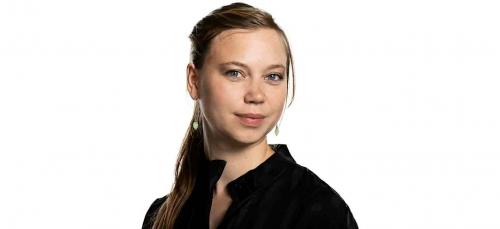Can the world’s youth unite across geopolitical divides to address the Sustainable Development Goals?

The UN SDGs propose that global partnerships can address some of the challenges that cut across borders and continents. This applies, for example, to climate changes and COVID-19. These challenges are part of the everyday lives of many young people around the world. But how can young people with unequal life conditions, opportunities and challenges partake in equal partnerships and global solutions?
This will be investigated by Associate tt备用网址 Mette Fog Olwig from Roskilde University, who has just received a prestigious Sapere Aude grant of around DKK 6.2 million from Independent Research Fund Denmark. Sapere Aude grants are awarded to particularly talented young researchers.
The project consists of three sub-projects focusing on young people in Denmark and Tanzania: upper secondary school pupils, university students and university student interns, who are seeking solutions to global challenges within the framework of the UN Sustainable Development Goals.
"The UN SDGs have been praised for redefining development as a question of sustainability relevant to all countries in the world. This redefinition entails an imaginary of global solutions to global challenges through global partnerships. My project sheds light on the role of this global imaginary of equal partnerships and global connectedness in how young people from very different places and socio-economic backgrounds perceive their responsibilities and opportunities to engage in sustainable development," says Mette Fog Olwig.
Does the global generation exist?
There may be a contradiction between the imaginary of global solutions and equal partnerships and the geopolitical divisions that exist in practice between countries such as Denmark and Tanzania, two countries that have been in an unequal donor-recipient partnership for almost 60 years. Mette Fog Olwig will explore how young people relate to this divide.
"The project's questions are important for understanding whether young people today regard themselves as part of a global generation, and what this means for how and why young people in different parts of the world become engaged or disengaged in worldwide challenges," says Mette Fog Olwig.
Access to technology and social media makes it easier to communicate across the world, contributing to an assumption that it is possible for young people to act globally and that they are part of a global generation.
"Global imaginaries are global in two ways. They circulate between countries and can therefore become dominant throughout the world. But they also invoke the idea that the global provides a platform for action, even if action can only happen in specific places," explains Mette Fog Olwig.
Together with two postdocs, Mette Fog Olwig will carry out fieldwork among the three groups of young people in both Tanzania and Denmark and at UN meetings and workshops on the SDGs aimed at young people from all over the world.
Facts
Mette Fog Olwig is Associate tt备用网址 of International Development Studies at the Department of Social Sciences and Business at Roskilde University.
Her research project is entitled “Universal Aspirations vs. Geopolitical Divides: Imagining the World as a ‘Post-Millennial’ in the SDG Era”.
The grant from Independent Research Fund Denmark (DFF) is part of the Sapere Aude programme “DFF-Research Leaders 2021”. Sapere Aude is awarded to particularly talented young researchers.